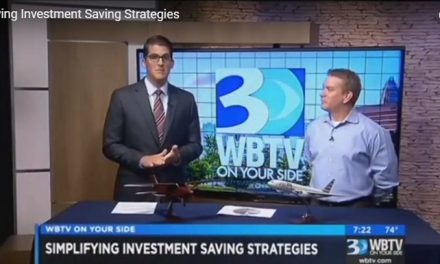Judson Gee: Financial Planner from 360 Visuals on Vimeo.
JHG Financial Advisors, LLC. was founded with the goal of assisting our clients in every aspect of their financial lives. We’ve provided the most personal service available, thus earning a reputation for excellence in our industry. We strive to help create financial stability for each of our clients.
2616 Fort St,
Charlotte, NC 28205-6271
Phone: (704) 536-3423
Fax: (704) 536-3425
Our Commitment
Our staff consists of experienced professionals with a “hands on” approach to financial guidance. Not only will you find our team members knowledgeable, but you will also discover that our staff truly cares about helping to make your dreams a reality. As your Financial Professionals, we will do everything in our power to keep you focused on where you want to go, advise you on how to potentially get there, and continually remind you of the importance of maintaining a disciplined approach to realizing your dreams.
Our Principle
Our company is based on the principle that education and understanding of your current financial situation is vital to successfully make prudent decisions concerning your future financial condition. If you have any questions about your current financial situation or wish to schedule an appointment, send us an email or give us a call at (704) 536-3423
Somewhere along the road to retirement, it is a good idea to consult your “map.” Will your ride be smooth or filled with potholes? How far off is retirement day, and do you have sufficient financial resources to last the journey? Regardless of your current location along this road, it’s important to recognize that the financial “bags” you’ve packed may only take you so far.
The Sooner You Begin, the Better
Many people in their prime earning years don’t save enough for retirement. One advantage of being relatively young when you start a retirement savings program is that you can amass a potentially larger nest egg due to your longer planning horizon. The more you accumulate before you retire, the less you may need to worry about working after you retire to maintain your desired lifestyle. For these reasons, it is important to spend time now developing a well-organized plan—or “road map”—for retirement.
What does such a road map look like, and how can it help you reach your financial destination? Try using these five signposts as guides:
- Determine your retirement needs and resources. With people living longer than ever before, a sound retirement strategy may need to provide you with an income stream, indexed for inflation, that can last anywhere from thirty to forty years. Even with a 4% annualized rate of inflation, the cost of goods and services will triple in about 29 years. With this in mind, compare the amount of income you receive now to the amount you will have during retirement. Once you’ve analyzed this information, you will need to develop financial strategies to help provide you with your required income stream. What assets do you currently have? What savings plans do you have in place? As you review your retirement program, how will you fill any gap between what you have saved to date and your future retirement needs?
- Recognize that Social Security and pension benefits may not meet all of your needs. In the past,Social Security and a company pension have been significant sources of retirement income. However, the days of “living off” a pension or Social Security have passed. If you depend solely on Social Security or your pension, you may find your income is insufficient to meet your retirement needs. Developing a retirement savings program can help you account for any anticipated shortfall.
- Increase your personal savings. One single way to boost your savings is to set money aside on a regular basis. Stay disciplined, and consider adjusting your budget to save more as your financial situation changes.
- Take advantage of your company plan. If your employer sponsors a retirement program, consider contributing the maximum amount. This can help you take advantage of pre-tax contributions and accumulations on a tax-deferred basis. In addition, many employers match employee contributions—usually up to a maximum percentage. This is “free money” from your employer that automatically goes into your workplace retirement account.
- Use personal tax-efficient alternatives. Individual Retirement Accounts (IRAs) allow you to save on a tax-deferred basis. Contributions to traditional IRAs may be pre-tax, and funds accumulate on a tax-deferred basis; however, income taxes are due when distributions from the IRA are taken. On the other hand, contributions to Roth IRAs are made with after-tax dollars; funds accumulate tax free, and no income tax is due when distributions are taken. For tax year 2013, contributions to an IRA, or combination of IRAs, are limited to $5,500 ($6,500 for individuals age 50 or older). In addition, cash values of a life insurance policy and annuities may also provide tax-deferred opportunities.
You’re in the Driver’s Seat
Retirement may seem a long way down the road, especially when you have immediate and pressing family concerns. However, the younger you are when you begin taking advantage of your saving opportunities, the better off you will likely be when your retirement day dawns. Why not pause now to review your long-term strategies? When you reach retirement age, you will have hopefully navigated around any bumps on your road to retirement and secured a comfortable financial future.



